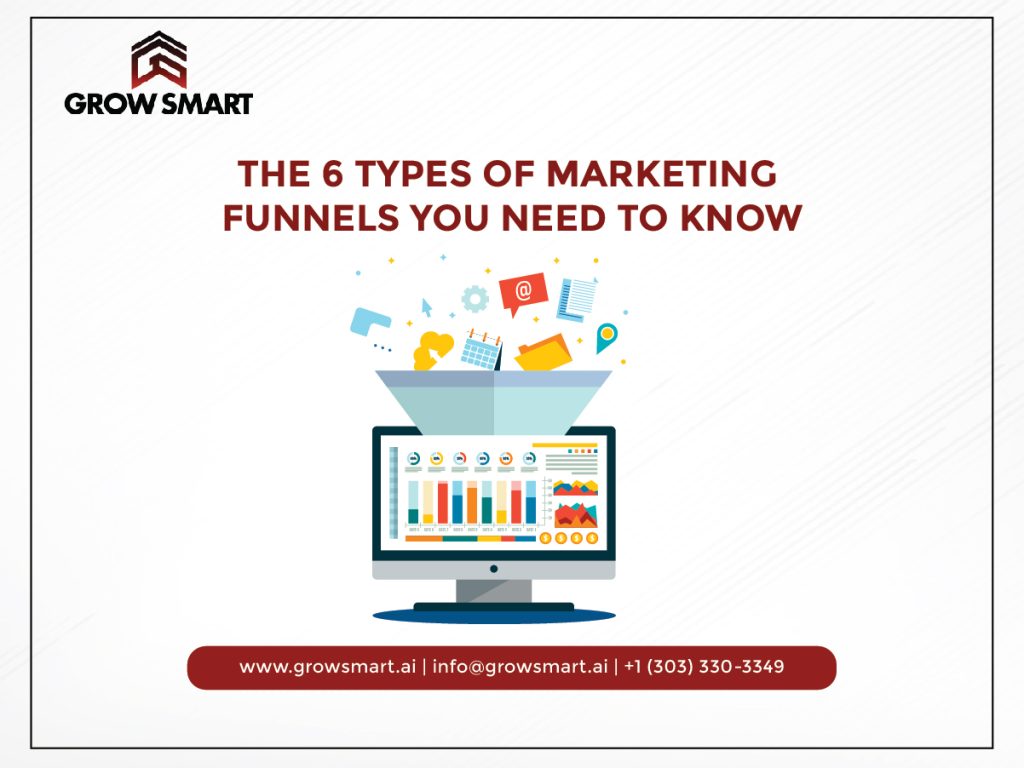
Marketing funnels are a series of steps a potential customer goes through before making a purchase decision. These funnels help businesses to convert leads into customers and increase their revenue. In this article, we’ll discuss six different types of marketing funnels that can help your business grow.
1. Lead Magnet Funnels
A lead magnet is an incentive business offering potential customers in exchange for their contact information, such as email addresses. Lead magnet funnels are designed to capture leads and move them further down the funnel toward a purchase decision. This type of funnel usually includes a landing page, a lead magnet, and a series of automated emails to nurture the lead.
To create an effective lead magnet funnel, you need to offer a valuable and relevant lead magnet that solves a problem your potential customers face. This could be an e-book, a free course, a webinar, or a checklist. Once you’ve captured the lead, you must nurture them with relevant content through email automation to build trust and credibility.
2. List Building Funnels
List-building funnels are similar to lead magnet funnels but with a focus on building a large email list of potential customers. The goal is to attract as many leads as possible using a lead magnet or other free content and then move them down the funnel toward a purchase decision.
To create a successful list-building funnel, you must create a compelling offer that resonates with your target audience. You can then promote your lead magnet through social media, advertising, or other channels to attract as many leads as possible. Once you have captured the lead, you can use email automation to nurture them and move them toward a purchase decision.
3. Webinar Funnels
Webinar funnels are designed to sell a product or service through a live or recorded online event. Webinars effectively build trust and credibility with your audience and educate them about your product or service. The funnel usually includes a landing page to promote the webinar, a registration page, a confirmation page, and a series of follow-up emails to promote the product or service.
To create a successful webinar funnel, choose a topic that resonates with your target audience and provides value to them. During the webinar, you must provide valuable content and educate attendees about your product or service. After the webinar, you can use email automation to follow up with attendees and promote your product or service. You can then promote the webinar through social media, email, and other channels to attract attendees.
4. Social Media Marketing Funnels
Social media marketing funnels are designed to attract and convert leads through social media platforms. The goal is to create engaging content that resonates with your target audience and encourages them to act, such as signing up for a free trial or purchasing.
To create a successful social media marketing funnel, you need to understand your target audience and create content that resonates with them. You can then promote your content through social media ads, organic posts, and influencer marketing. Once you’ve attracted the lead, you can use retargeting ads and email automation to move them toward a purchase decision.
5. Video Sales Funnels
Video sales funnels are designed to sell a product or service through a series of videos. The goal is to educate potential customers about your product or service and give them a compelling reason to purchase.
To create a successful video sales funnel, you must create high-quality videos and promote your videos through social media, email, and other channels to attract potential customers. Once the potential customer has watched the videos, you can use retargeting ads and email automation to move them toward a purchase decision.
6. Email Funnels
Email funnels are a series of automated emails sent to potential customers to nurture them and move them toward a purchase decision. The goal is to provide value to the potential customer and build trust and credibility.
To create a successful email funnel, you must understand your target audience and provide them with relevant and valuable content. The funnel usually includes a series of emails that provide educational content, social proof, and special offers to encourage potential customers to purchase. You can then use segmentation and personalization to ensure each email is tailored to the recipient’s interests and needs.
Conclusion
Marketing funnels are a powerful tool for businesses to convert leads into customers and increase revenue. By understanding the different types of marketing funnels and how to create them, you can attract more leads and move them toward a purchase decision. Remember to always provide value to your potential customers and use SEO best practices to ensure that your content is visible and valuable to your target audience.
Ready to take your business to the next level with effective marketing funnels? Contact GrowSmart today to schedule a consultation with our expert digital marketing team and learn how we can help you attract more leads and convert them into loyal customers. Don’t miss out on the opportunity to grow your business – take action now and contact us to get started!







